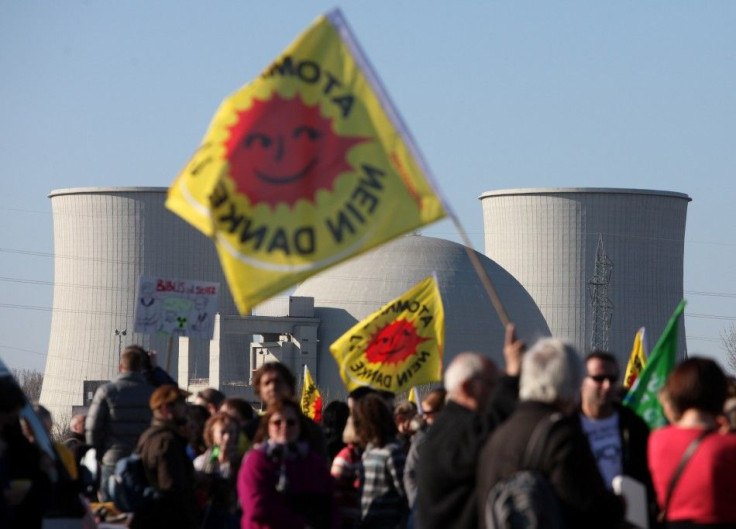Germans Move To Exit The Nuclear Age

The Associated Press reports that Germany plans to be the first industrialized nation to abandon nuclear power.
The country has been investing heavily in renewable energy, and has a variety of taxes and incentives designed to make renewables competitive with cheap but dirty sources such as coal.
The transition was originally to take 25 years, but the government of Chancellor Angels Merkel has decided to accelerate the program, especially in the wake of the disaster at the Fukushima Daiichi reactor in Japan.
Some experts say the German model could provide a blueprint for other nations such as the U.S. If we had the winds of Texas or the sun of California, the task here would be even easier, Felix Matthes of Germany's renowned Institute for Applied Ecology told the AP. Given the great potential in the U.S., it would be feasible there in the long run too, even though it would necessitate huge infrastructure investments.
Not every country is in a position to wean itself from nuclear. France gets 70 percent of its electricity from nuclear plants. The U.S. gets only about 25 percent, as does Germany (23 percent).
Nuclear power's popularity in Germany took a big hit in 1986 when radioactive contaminants drifted over the country after the Chernobyl disaster. Even though it didn't result in any deaths or illness, it illustrated the scale of a serious nuclear accident, should one occur.
The government had a plan 10 years ago to cease using nuclear power by 2021. The Merkel government extended that timetable by a dozen years. But the nuclear disaster that happened after the march 11 earthquake and tsunami in Japan prompted the German government to re-check the safety of its nuclear power infrastructure.
Germany's plan to shut down its reactors will require at least €150 billion ($210 billion) investment in alternative energy sources. The country gets 17 percent of its electricity from renewable energies, 13 percent from natural gas and more than 40 percent from coal. The Environment Ministry says the renewables portion will increase to 40 percent in 10 years.
Last year, German investment in renewable energy topped €26 billion ($37 billion) and secured 370,000 jobs, the government said.
Even many conservative politicians have come out for moving away from nuclear. Vice Chancellor Guido Westerwelle has said the country should check the safety of the country's reactors and make sure viable alternatives are in place.
Even if non-nuclear, renewable energy is more expensive, Germans seeing images daily of Japan's crippled Fukushima nuclear plant might be willing to pay the price. Ralph Kampwirth, spokesman for Lichtblick AG, a utility offering electricity exclusively from renewable sources, said since the Fukushima disaster it has been getting nearly three times more new clients than normal, despite above-average prices.
© Copyright IBTimes 2024. All rights reserved.




















